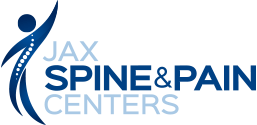Regenerative medicine is a life-changing area of medicine that has the potential to fully heal damaged tissues and organs. This therapy offers solutions and hope for people who have conditions that today are beyond repair. In all of Northeast Florida, Jax Spine & Pain Centers is the leading center for regenerative therapies.
Regenerative medicine itself is not new — the first bone marrow and solid-organ transplants were done decades ago. However advances in developmental and cell biology, immunology, and other fields have unlocked new opportunities. The potential behind these new opportunities helps to refine existing regenerative therapies and also develop novel ones, according to like-minds in the medical community.
- Rejuvenation means boosting the body’s natural ability to heal itself. Though after a cut your skin heals within a few days, other organs don’t repair themselves as readily.
But cells in the body once thought to be no longer able to divide (terminally differentiated) — including the highly specialized cells constituting the heart, lungs and nerves — have been shown to be able to remodel and possess some ability to self-heal. Teams within the center are studying how to enhance self-healing processes.
- Replacement involves using healthy cells, tissues or organs from a living or deceased donor to replace damaged ones. Organ transplants, such as heart and liver transplants, are good examples.
The center aims to expand opportunities for transplants by finding ways to overcome the ongoing donor shortage, the need for immunosuppression and challenges with organ rejection.
- Regeneration involves delivering specific types of cells or cell products to diseased tissues or organs, where they will ultimately restore tissue and organ function. This can be done through cell-based therapy or by using cell products, such as growth factors. Bone marrow transplants are an example.
Regenerative medicine has been proven to be definitive, affordable health care solutions that heal the body from within.
Stem Cells & Their Role
Stem cells have the ability to develop — through a process called differentiation — into many different types of cells, such as skin cells, brain cells, lung cells and so on. Stem cells are the key component of regenerative medicine. These cells open the door to new clinical applications.
Stem Cells 101
When you hear the words ‘Stem cells,’ 99% of the time it is most likely in some sort of media setting linked to their use in regenerative medicine. Extracting the hype, what does it ALL really mean? Researchers in the Center for Regenerative Medicine say “it has to do with developing completely new ways to treat and manage chronic diseases such as diabetes, heart failure, and degenerative nerve, bone and joint conditions.”







